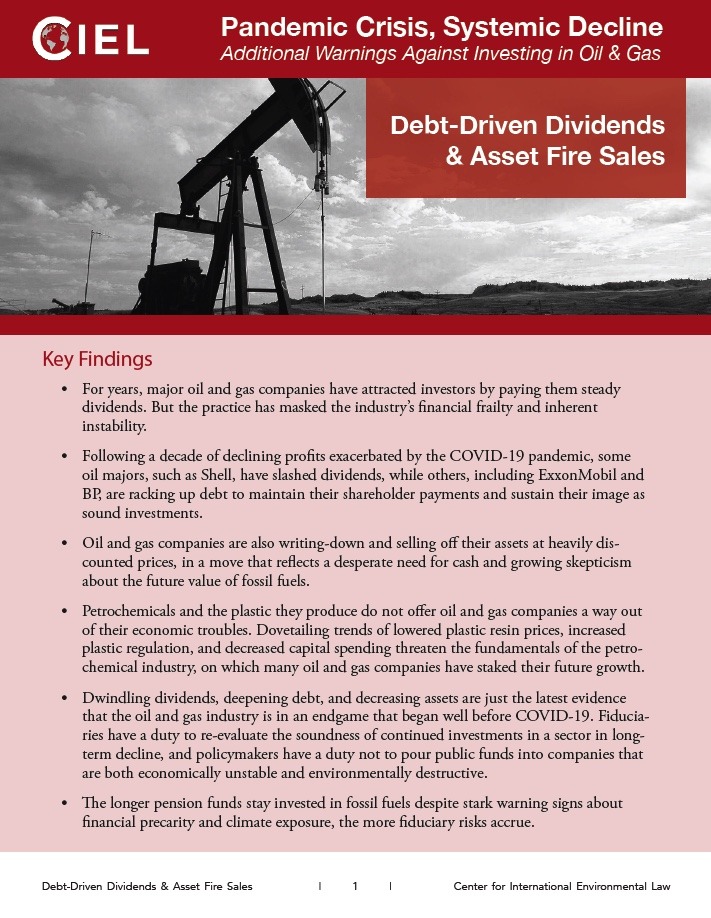
Oil, gas, and petrochemical companies are selling off assets at massively discounted prices, slashing dividend payouts for shareholders, and racking up debt to preserve a facade of stability. Even the petrochemical sector — hailed by industry leaders as a panacea for future growth — has been exposed for its unviable economic prospects.
Debt-Driven Dividends & Asset Fire Sales is a look at an industry in the middle of a crisis that is being magnified by the COVID-19 pandemic. As the longstanding precarity of the oil, gas, and petrochemical sectors becomes unmistakable, it’s clear that no form of public or private investment will save them, nor should they.
Key Findings:
- For years, major oil and gas companies have attracted investors by paying them steady dividends. But the practice has masked the industry’s financial frailty and inherent instability.
- Following a decade of declining profits exacerbated by the COVID-19 pandemic, some oil majors, such as Shell, have slashed dividends, while others, including ExxonMobil and BP, are racking up debt to maintain their shareholder payments and sustain their image as sound investments.
- Oil and gas companies are also writing-down and selling off their assets at heavily discounted prices, in a move that reflects a desperate need for cash and growing skepticism about the future value of fossil fuels.
- Petrochemicals and the plastic they produce do not offer oil and gas companies a way out of their economic troubles. Dovetailing trends of lowered plastic resin prices, increased plastic regulation, and decreased capital spending threaten the fundamentals of the petrochemical industry, on which many oil and gas companies have staked their future growth.
- Dwindling dividends, deepening debt, and decreasing assets are just the latest evidence that the oil and gas industry is in an endgame that began well before COVID-19. Fiduciaries have a duty to re-evaluate the soundness of continued investments in a sector in longterm decline, and policymakers have a duty not to pour public funds into companies that are both economically unstable and environmentally destructive.
- The longer pension funds stay invested in fossil fuels despite stark warning signs about financial precarity and climate exposure, the more fiduciary risks accrue.
Read the full, designed report here.
Read an accessible version of the report here.
The brief serves as an update to CIEL’s April 2020 report Pandemic Crisis, Systemic Decline: Why Exploiting the COVID-19 Crisis Will Not Save the Oil, Gas, and Plastic Industries which revealed how the collapse of these sectors long predates the pandemic and will not be solved by further bailouts or regulatory rollbacks.
